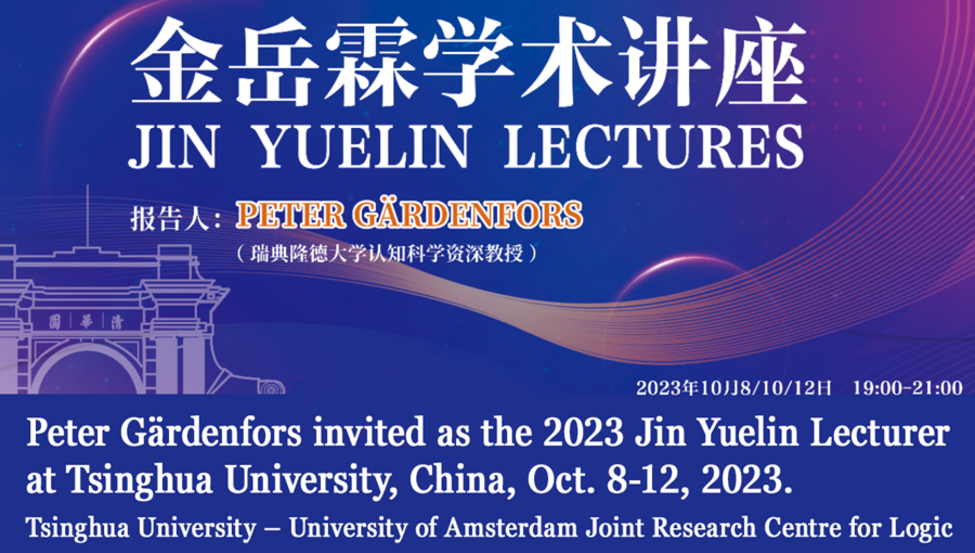The Jin Yuelin Lectures at Tsinghua University
The Lecture Series is named after Jin Yuelin (in Chinese: 金岳霖), a pioneering philosopher and logician in China. After his study at Columbia University in the United States, he established the department of philosophy at Tsinghua University in 1926, where he started teaching modern logic for the first time in China, while engaging in deep encounters between modern and Chinese philosophy. Jin Yuelin’s personality and ideas have had a continuing impact on logicians and philosophers in China right until today. Well-known scholars will be invited to visit Tsinghua to give these lectures annually, interacting with students and researchers at the interface of logic and philosophy, broadly conceived.
Link: The Jin Yuelin Lectures at Tsinghua University
Jin Yuelin Lecturer 2023
Peter Gärdenfors is Senior Professor of Cognitive Science at Lund University, Sweden. His previous research focused on belief revision. His main topics now are model of concepts, cognitive semantics and the evolutions of cognition.
For more information, see: www.fil.lu.se/person/PeterGardenfors
Program
Lecture 1 (8 October): How to socialize with robots
It is not sufficient that robots that interact with human can perform a variety of actions, but they must also be able to understand what is on the minds of humans. I focus on how a robot could understand the emotions, the attention and the intentions of humans. I also discuss how this could possibly be implemented in robotic systems.
Lecture 2 (10 October): Conceptual spaces as a tool for knowledge representation
Artificial intelligence and cognitive science have been dominated by two approaches to knowledge representation: symbolic and connectionist. In addition, I propose conceptual spaces that uses geometrical notions such as dimensions, vectors and convexity to represent various forms of knowledge. I outline how conceptual spaces can form the basis for a computational semantics.
Lecture 3 (12 October): Reasoning with concepts
Within computer science and philosophy, reasoning has mainly been studied in logical systems. I show how conceptual spaces can be used to model many forms of reasoning that are not covered by the logical approach, but which have been investigated within cognitive psychology. In particular, I discuss expectations, category-based induction, analogies and generic statements.

